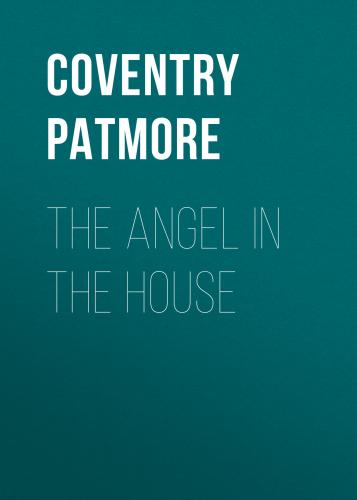The church-restorings; lounged awhile,
And met the Dean; was ask’d to tea,
And found their cousin, Frederick Graham
At Honor’s side. Was I concern’d,
If, when she sang, his colour came,
That mine, as with a buffet, burn’d?
A man to please a girl! thought I,
Retorting his forced smiles, the shrouds
Of wrath, so hid as she was by,
Sweet moon between her lighted clouds!
Whether this Cousin was the cause
I know not, but I seem’d to see,
The first time then, how fair she was,
How much the fairest of the three.
Each stopp’d to let the other go;
But, time-bound, he arose the first.
Stay’d he in Sarum long? If so
I hoped to see him at the Hurst.
No: he had call’d here, on his way
To Portsmouth, where the Arrogant,
His ship, was; he should leave next day,
For two years’ cruise in the Levant.
Had love in her yet struck its germs?
I watch’d. Her farewell show’d me plain
She loved, on the majestic terms
That she should not be loved again;
And so her cousin, parting, felt.
Hope in his voice and eye was dead.
Compassion did my malice melt;
Then went I home to a restless bed.
I, who admired her too, could see
His infinite remorse at this
Great mystery, that she should be
So beautiful, yet not be his,
And, pitying, long’d to plead his part;
But scarce could tell, so strange my whim,
Whether the weight upon my heart
Was sorrow for myself or him.
She was all mildness; yet ’twas writ
In all her grace, most legibly,
‘He that’s for heaven itself unfit,
Let him not hope to merit me.’
And such a challenge, quite apart
From thoughts of love, humbled, and thus
To sweet repentance moved my heart,
And made me more magnanimous,
And led me to review my life,
Inquiring where in aught the least,
If question were of her for wife,
Ill might be mended, hope increas’d.
Not that I soar’d so far above
Myself, as this great hope to dare;
And yet I well foresaw that love
Might hope where reason must despair;
And, half-resenting the sweet pride
Which would not ask me to admire,
‘Oh,’ to my secret heart I sigh’d,
‘That I were worthy to desire!’
As drowsiness my brain reliev’d,
A shrill defiance of all to arms,
Shriek’d by the stable-cock, receiv’d
An angry answer from three farms.
And, then, I dream’d that I, her knight,
A clarion’s haughty pathos heard,
And rode securely to the fight,
Cased in the scarf she had conferr’d;
And there, the bristling lists behind,
Saw many, and vanquish’d all I saw
Of her unnumber’d cousin-kind,
In Navy, Army, Church, and Law;
Smitten, the warriors somehow turn’d
To Sarum choristers, whose song,
Mix’d with celestial sorrow, yearn’d
With joy no memory can prolong;
And phantasms as absurd and sweet
Merged each in each in endless chace,
And everywhere I seem’d to meet
The haunting fairness of her face.
CANTO IV
The Morning Call
PRELUDES
Lo, when the Lord made North and South
And sun and moon ordained, He,
Forthbringing each by word of mouth
In order of its dignity,
Did man from the crude clay express
By sequence, and, all else decreed,
He form’d the woman; nor might less
Than Sabbath such a work succeed.
And still with favour singled out,
Marr’d less than man by mortal fall,
Her disposition is devout,
Her countenance angelical;
The best things that the best believe
Are in her face so kindly writ
The faithless, seeing her, conceive
Not only heaven, but hope of it;
No idle thought her instinct shrouds,
But fancy chequers settled sense,
Like alteration of the clouds
On noonday’s azure permanence;
Pure dignity, composure, ease
Declare affections nobly fix’d,
And impulse sprung from due degrees
Of sense and spirit sweetly mix’d.
Her modesty, her chiefest grace,
The cestus clasping Venus’ side,
How potent to deject the face
Of him who would affront its pride!
Wrong dares not in her presence speak,
Nor spotted thought its taint disclose
Under the protest of a cheek
Outbragging Nature’s boast the rose.
In mind and manners how discreet;
How artless in her very art;
How candid in discourse; how sweet
The concord of her lips and heart;
How simple and how circumspect;
How subtle and how fancy-free;
Though
